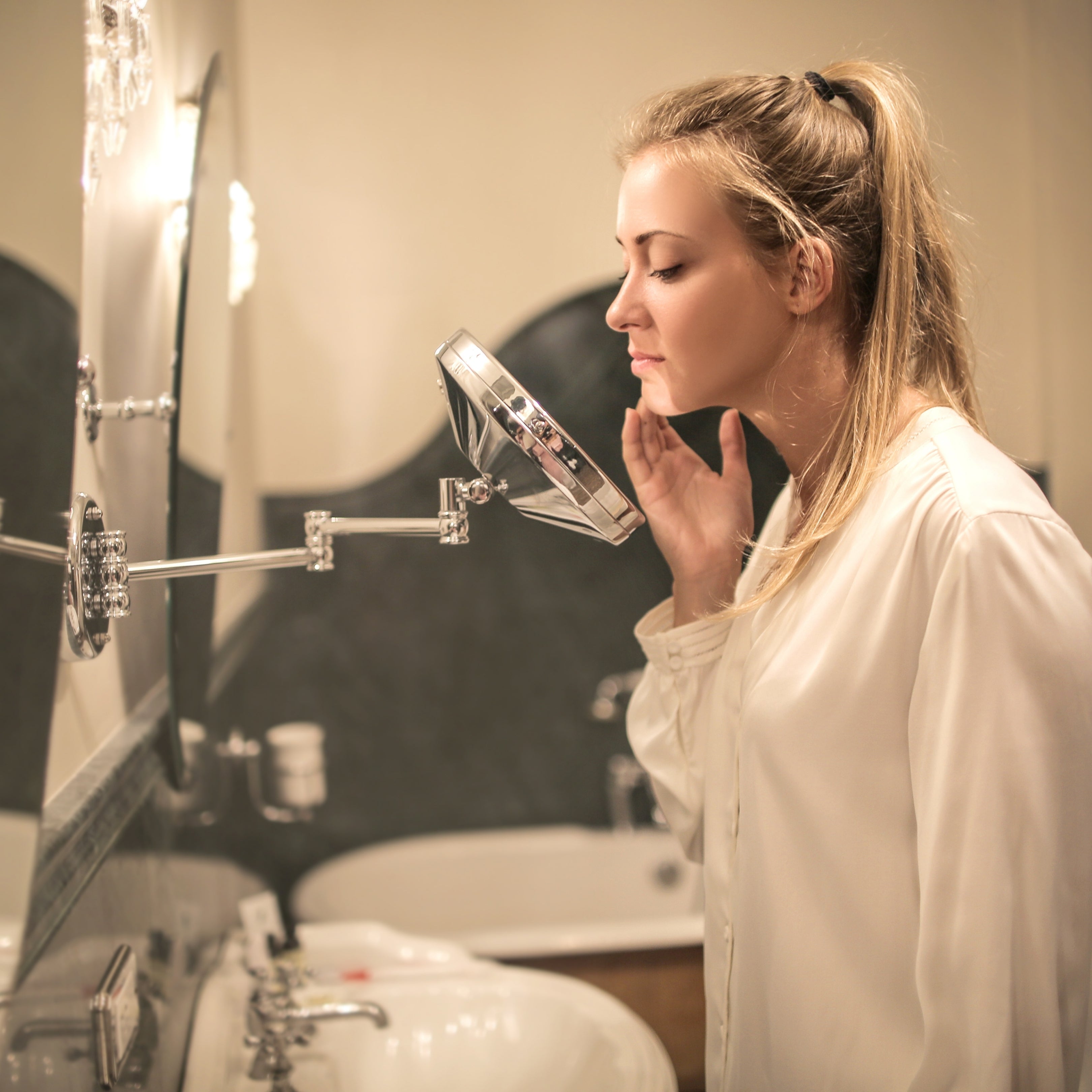By Dr. Peter Klapper Ph.D.
Acne is a skin condition that occurs from overproduction of oil (sebum) by the oil glands of the skin. Although acne is often associated with teenagers—learn more in our article on Teen Acne: 10 Tips on How to Manage & Prevent Breakouts—it can affect people from ten to adults well into their 40's. Women often develop acne in their mid to late 20's, even if they never had breakouts prior; to understand why, read Adults and Acne: Why You Still Can Have Blemishes into Your 20's. Acne can appear as whiteheads, blackheads, pimples (zits), pustules, or cysts.
As such, acne treatment procedures are varied, and there are many ways that you can get rid of acne, from acne home remedies to natural acne treatments that work in blackhead removal to clear up your skin and get rid of pimples.
What causes acne?
Acne occurs wherever there are overactive oil (sebaceous) glands on the skin. This oil (sebum) is a natural substance for lubricating and protecting the skin. When overactive oil glands produce too much sebum, it blocks the sebaceous gland openings, causing an oil buildup underneath. In turn, this oil stimulates an overgrowth of bacteria.
Although acne is not caused by a bacterial infection or poor hygiene, a bacterium makes the situation worse. The bacterium Propionibacterium acnes (P. acnes) is a normal part of the skin's surface, protecting skin from harmful bacteria invasion. But when there is too much oil, the P. acnes grows inside the blocked pore. Once inside, P. acnes produces chemicals altering the sebum's composition. This irritates the skin and causes inflammation.
What are acne symptoms?
Inflammation near the skin's surface produces a pustule. Deeper inflammation results in a papule (pimple). Even deeper inflammation results in a cyst. If the oil accumulates melanin (pigment that gives skin its color) or becomes oxidized, the oil changes from white to black, and the result is a "blackhead." Contrary to a common myth, blackheads are not dirt caused by poor hygiene.
How to get rid of acne?
The main three acne causes are excess oil, clogged pores, and bacteria. Choosing cosmetics that do not clog pores, cleansing pores regularly to prevent oil buildup, and maintaining a healthy diet all contribute to acne reduction. Some believe genetics, stress, hormone fluctuations, certain foods, or drugs may exacerbate acne. Although they may see an increase in acne outbreaks, none of these factors are proven to cause acne.
The good news, though, is that homeopathic remedies can go a long way when it comes to treating acne. Acne products and acne remedies that are natural and safe in that regard are very beneficial for people to not only treat acne but keep the skin healthy in doing so.
When it comes to knowing how to remove blackheads, make it a point to seek out natural acne treatments and cystic acne treatments. They are often much easier on the human body and much more benign on the skin, allowing you to get rid of everything from back acne to blackheads on the nose or other areas of the body. Over time, and with good skin care, you can prevent acne and keep your skin clear, healthy, and more.
If you're dealing with acne on your back, known as bacne, our Bacne 101: Tips for Dealing with Back Acne provides helpful insights. For those interested in treating adult acne with organic options, consider reading Treating Adult Acne with Certified Organic Medicine. Additionally, severe forms like cystic acne can lead to scarring; learn how to manage this in How To Treat Scars Caused By Cystic Acne.


